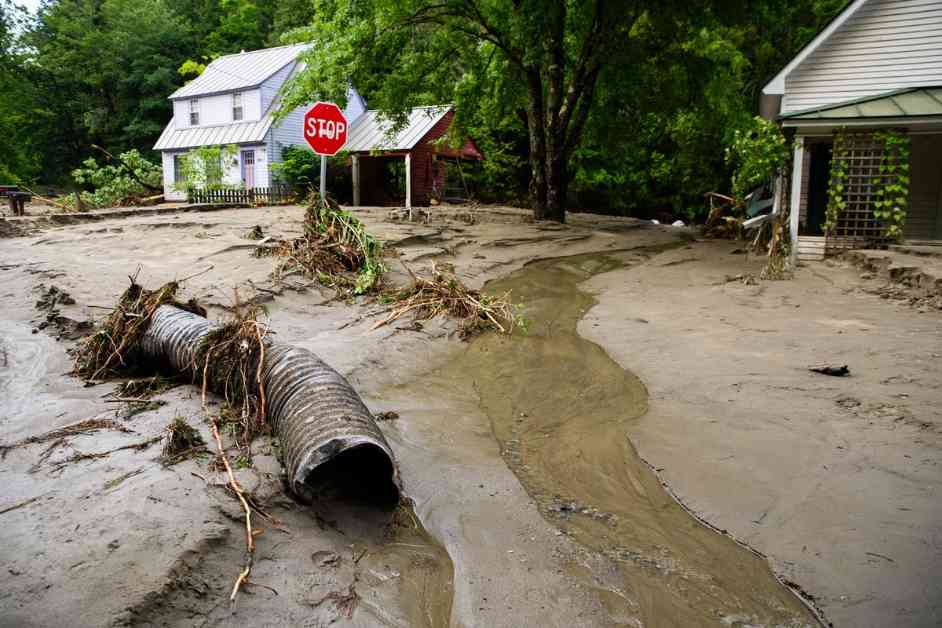One year after Barre, Vermont was submerged by a historic flood, the town faced another deluge on the anniversary of the devastating event. Melissa Pecor, a local restaurant owner, shared her emotional experience of dealing with the aftermath of last year’s flood and the challenges of facing a similar situation once again.
With nearly 5 inches of rain falling over several hours, Barre was left covered in mud, reminiscent of the previous year’s disaster. The town became a victim of Hurricane Beryl, adding to the growing list of areas affected by severe weather events due to a warming planet. The impact of these storms has put a strain on small communities like Barre, which struggle to recover from past damages and prepare for future challenges.
Last year’s flooding caused significant economic damage, estimated at $300 million in the central part of Vermont. State legislators have been working on solutions to address the aftermath, including laws to restrict development in floodplains and creating grant programs for communities affected by floods. The community is also looking at innovative ways to fund climate damages, such as the proposed climate superfund.
Residents like Melissa Pecor are still dealing with the effects of last year’s disaster, with ongoing repairs and challenges with insurance coverage. The recent flood brought back memories of the trauma from the previous year, affecting not only businesses but also individuals and families in the area.
Despite the devastating impact of the storms, the community is showing resilience and determination to rebuild. Organizations like Downstreet Housing and Community Development have been working to support families affected by the floods and are making progress in recovery efforts. While the recent flood caused some damage, it was considered more manageable compared to last year’s catastrophic event.
City officials in Barre, including City Manager Nicolas Storellicastro, are focused on preparing for future storms and upgrading infrastructure to mitigate risks. However, bureaucratic challenges and underinvestment in the city’s infrastructure have posed obstacles to these efforts. The need for improvements in infrastructure, such as raising bridges and installing gauges in rivers, is crucial to enhancing the city’s resilience to extreme weather events.
As Barre continues to recover from the impact of Hurricane Beryl and last year’s flooding, the community is coming together to support one another and build a more resilient future. Despite the challenges they face, residents and local organizations are working towards a safer and stronger community for generations to come.






